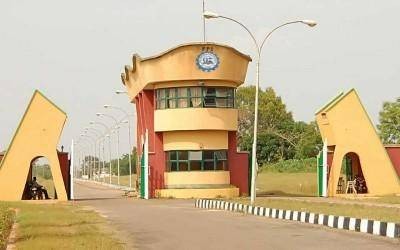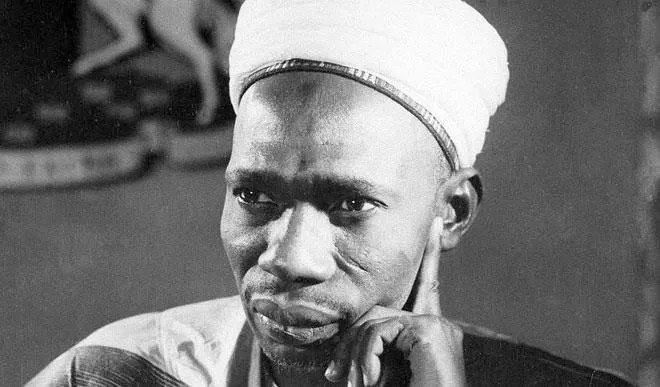
There have been 13 different heads of states in Nigeria since the country’s declaration as a republic in 1963. President Muhammadu Buhari, who currently leads the country, is the 15th head of state overall, but between 1983 to 1985, when a military dictatorship was in place, he was the 7th head of state. At separate, non-consecutive times, Olusegun Obasanjo served as the country’s fifth and twelfth heads of state, initially holding the position while serving in the military and afterwards as a civilian. The remainder of this article provides a list of the Heads of State in Nigeria from 1960 to date and their biographies.
Heads of State In Nigeria From 1960 till Date and Their Biographies
Abubakar Tafawa Balewa
1. ALHAJI ABUBAKAR TAFAWA BALEWA (1960 – 1966)
In the Northern Nigeria Protectorate, in what is now Bauchi State, Abubakar Tafawa Balewa was born in December 1912. Balewa.
Balewa was one of the first Northern Nigerians sent to the London University Institute of Education in 1945. He was a teacher by trade. After his return in 1946, he was chosen to serve in the Northern Region’s House of Assembly and was one of its five deputies to the Central Legislative Council in Lagos in 1947. In 1951, he was re-elected to the parliament despite the opposition of certain traditionalist emirs from the region’s predominantly Muslim north.
Balewa was a federal employee from 1952 till his death. He served as minister of transportation and worked in the middle of the 1950s before becoming Nigeria’s first prime minister in 1957 while serving as the NPC’s leader in the House of Representatives. Following the pre-independence elections in 1959, he once more rose to the position of prime minister in a coalition administration made up of the NPC and Nnamdi Azikiwe’s National Council of Nigeria and the Cameroons. He retained that position even after Nigeria gained formal independence in 1960. The federal government structure in Nigeria, which gave the regions more power, limited his ability to act as prime minister.
Balewa could not calm the rising tensions of 1964 –1966, exemplified by the Western Region’s violent outbursts, an army revolt, and a partial boycott of the election in 1964. In 1966, he was assassinated in Nigeria’s first two army coups.
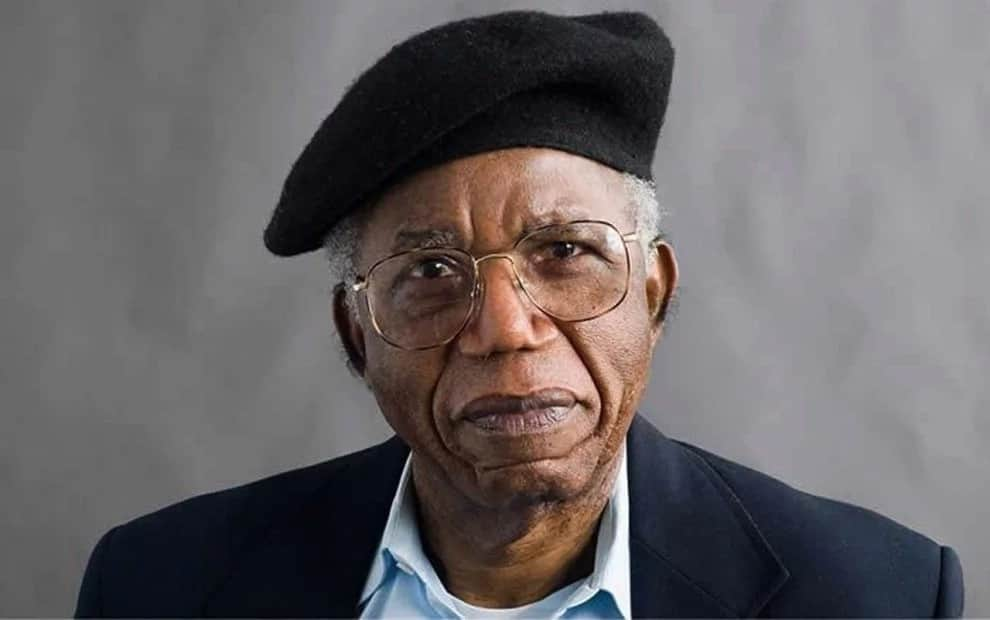
Benjamin Nnamdi Azikiwe
2. CHIEF BENJAMIN NNAMDI AZIKIWE (OCTOBER 1, 1963 – JANUARY 16, 1966)
The first President of Nigeria from 1963 to 1966 was a Nigerian statesman and political figure who was more commonly known as “Zik. “He was raised in Zungeru in modern-day Niger State, where he learned to speak Hausa as a young child. By the time he was in college, he had been exposed to several Nigerian cultures and spoke three languages, including Yoruba, which he learned during a visit to Lagos.
The National Council of Nigeria and the Cameroons (NCNC), which after 1951 came to be increasingly associated with the Igbo people of southern Nigeria, was founded by him there in 1944. He also founded and edited newspapers there and got directly involved in politics, first with the Nigerian Youth Movement and then as one of its founders. Azikiwe was elected to the Nigerian Legislative Council in 1948 with the support of the NCNC. From 1954 to 1959, he was the premier of the Eastern region.
Before Nigerian independence in 1959, Azikiwe led the NCNC into the crucial federal elections.
He was appointed governor-general and president, all of which were primarily honorary positions.
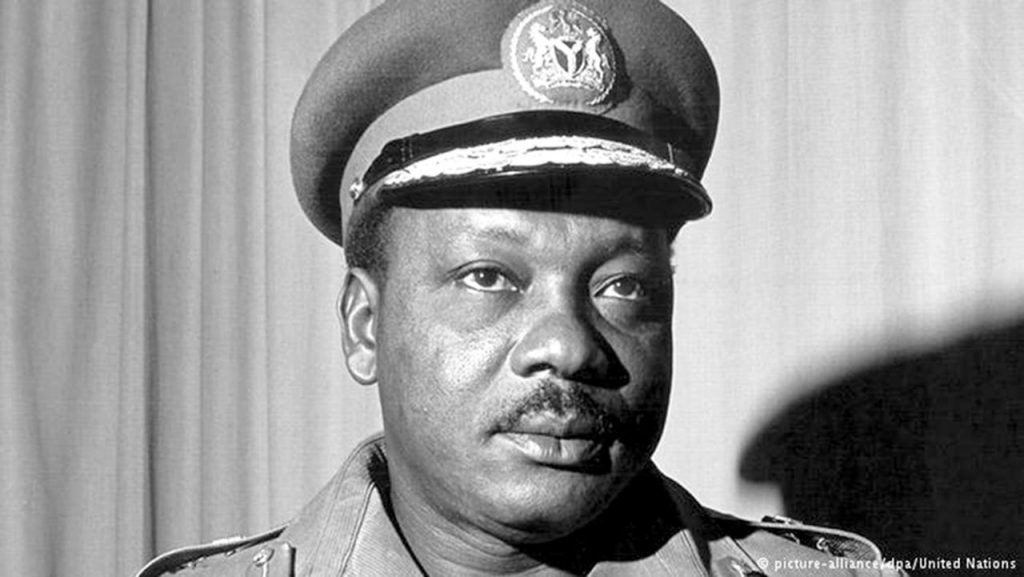
Major General Johnson Thomas Aguyi Ironsi
3. MAJOR GENERAL JOHNSON THOMAS UMUNNAKWE AGUIYI IRONSI (JANUARY 16, 1966 – JULY 29, 1966)
On March 3, 1924, Major General Johnson Thomas Umunnakwe Aguiyi-Ironsi (deceased) was born in Umuahia-Ibeku, present-day Abia State, Nigeria, to Mazi Ezeugo Aguiyi. At 18, Aguiyi-Ironsi enlisted in the Nigerian Army on February 2, 1942. Before being confirmed as a Lieutenant on June 12, 1949, he received his military training in Eaton Hall, England, and afterwards with the Royal Army Ordnance Corps.
Aguiyi-Ironsi took over as General Officer Commanding of the Nigerian Army on February 9, 1965, after Major General Welby-Everard, a British general, resigned from his position to allow the government to nominate an indigenous GOC. He assumed the military head of state following the coup on January 14, 1966. Aguiyi-Ironsi was ultimately killed by a countercoup on July 29, 1966, as evidenced by the discovery of both his and Adekunle Fajuyi’s bodies.
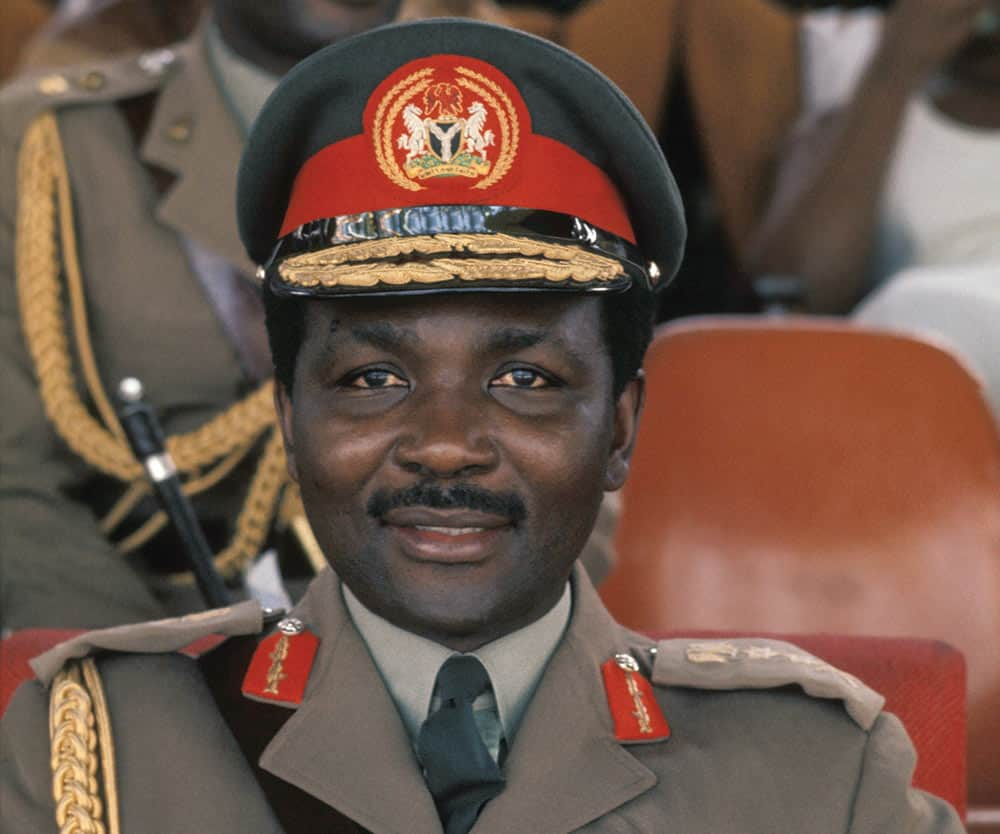
General Yakubu Gowon
3. GENERAL YAKUBU GOWON AUGUST 1, 1966 – JULY 29, 1975
19 October 1934 marked Yakubu Gowon’s birth. His home state in Nigeria is Plateau. Before enlisting in the Nigerian Army, Yakubu Gowon completed his formative years of study in Zaria. Yakubu Gowon received training in Ghana and England after enrolling in the military. Later, in 1983, he received his doctorate from Warick University and worked as a political science professor at the University of Jos.
As a soldier with the Nigerian peacekeeping army, Yakubu Gowon has deployed to the Congo region. He was then named chief of staff following the 1966 military takeover by General Johnson Aguiyi-Ironsi. After a coup that forced Aguiyi-Ironsi from office, he was chosen to serve as the military head of state in July 1966.
In his capacity as Nigeria’s head of state, Gowon presided over the contentious Nigerian Civil War and, to foster healing and reconciliation, made the infamous “no victor, no conquered” statement at the conflict’s conclusion.
Gowon’s ascent to power after the counter-coup in July 1966 solidified military dominance in Nigeria. Gowon ruled for nearly nine years before being overthrown in the coup d’état of 1975 by Brigadier Murtala Mohammed, making him the longest-serving head of state of Nigeria in terms of continuous rule.
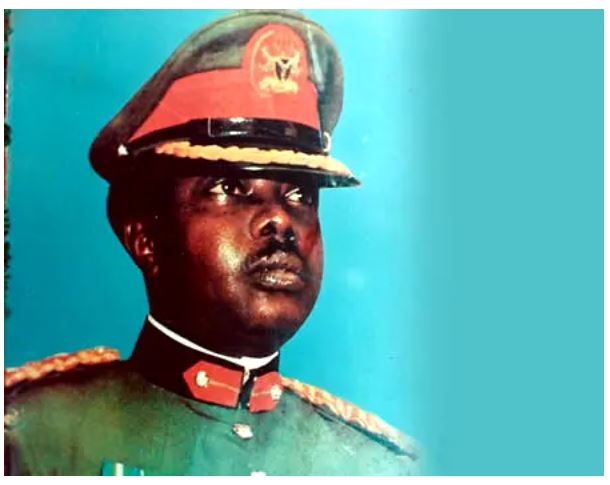
General Murtala Mohammed
4. MURTALA MOHAMMED (JULY 29, 1975 – FEBRUARY 13, 1976)
Murtala Mohammed, a Nigerian commander who rose to prominence during the Nigerian Civil War and later controlled Nigeria from 30 July 1975 until his murder on 13 February 1976, was responsible for overthrowing the Republic of Nigeria. Murtala, raised in a wealthy, devout family in Kano and was born on November 8th, 1938, served in the Nigerian Army while a cadet at the Royal Military Academy at Sandhurst. He later served in the Congo and, at the age of 33, became one of Nigeria’s youngest brigadier generals in 1971 after rising through the ranks. His career took off again after Chukwuma Kaduna Nzeogwu, and the young majors planned the first military coup in Nigeria in 1966, which gave him the authority to take charge of the mutiny that took place on the evening of July 29, 1966, in Abeokuta. In July 1966, he planned the countercoup, which unquestionably sparked the Nigerian Civil War.
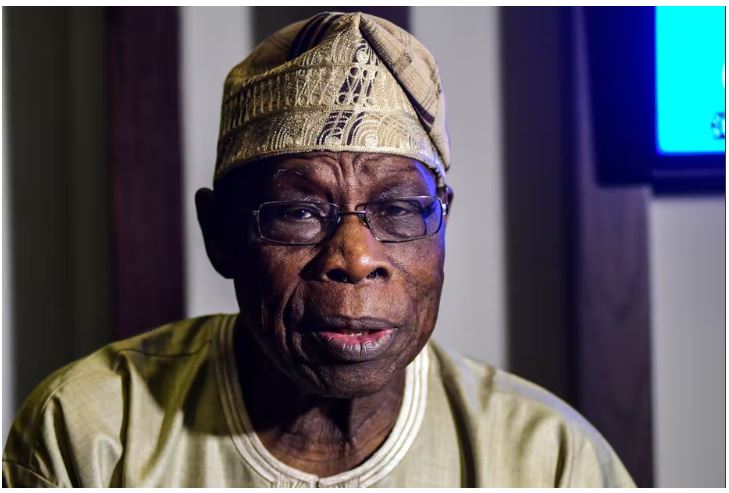
General Olusegun Okikiola Obasanjo
5. GENERAL OLUSEGUN AREMU OKIKIOLA MATTHEW OBASANJO (FEBRUARY 13, 1976 – OCTOBER 1, 1979; MAY 29, 1999 – 29 MAY, 2007)
Olusegun Obasanjo is a Nigerian general, statesman, and diplomat who was the first military leader in Africa to hand over power to a civilian government. He was born on March 5, 1937, in Abeokuta, Nigeria. He presided over Nigeria as its military ruler from 1976 to 1979 and its president from 1999 to 2007.
He entered the army in 1958 and attended officer training in England since he couldn’t afford college. Obasanjo advanced swiftly through the ranks of the military. He was responsible for leading a commando division stationed at the Biafran front in southeast Nigeria during the Biafra crisis (1967–1970).
General Yakubu Gowon’s military regime was overthrown in 1975 by Brigadier General Murtala Ramat Mohammed, who also promised to hand over control to a civilian administration by 1979. However, Mohammed was killed the following year during a botched coup attempt, and his deputy, Obasanjo, took over as president.
He was also proclaimed the winner of the 1999 election that returned Nigeria to democratic rule. However, there were numerous claims of fraud, and the outcomes received harsh criticism from many, particularly the supporters of Olu Falae who were also of Yoruba descent like Obasanjo.
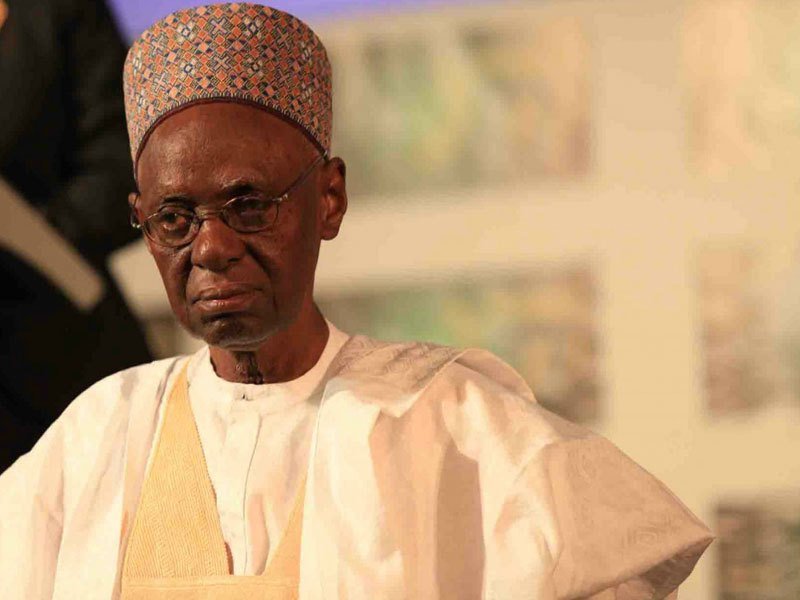
Shehu Shagari
6. SHEHU SHAGARI (OCTOBER 1, 1979 – DECEMBER 31, 1983)
Shehu Shagari, whose full name was Alhaji Shehu Usman Aliyu Shagari, was a Nigerian politician and the country’s president from 1979 to 1983. He was born on December 28, 2018, in Abuja, Nigeria.
Shagari attended Kaduna College and briefly worked as a teacher. In 1979, he ran against Awolowo, and after the military administration under Olusegun Obasanjo permitted a return to civilian rule and narrowly defeated Awolowo in the presidential elections.
The early 1980s international economic crisis left a lasting impact on Nigeria. Shagari made several decisions to boost the economy, including reducing the budget, involving the IMF, and deporting two million foreigners (mainly Ghanaians) in 1983. Still, when the economy and corruption in his administration grew worse, his government was overthrown by a military coup on December 31, 1983, and Shagari was detained. Shagari was acquitted of all allegations of personal corruption and granted release from prison in 1986, but he was permanently barred from participating in Nigerian politics.

Muhammadu Buhari
7. MUHAMMADU BUHARI (DECEMBER 31, 1983 – AUGUST 27, 1985; 29 MAY, 2015 – DATE)
Born in Daura, Nigeria, on December 17, 1942, Muhammadu Buhari is a political figure and military leader in Nigeria. He was elected president in a democratic election in 2015 after serving as the nation’s head of state in 1984 and 1985.
Buhari received most of his military training in Kaduna and Britain, India, and the US. He received the majority of his education in Katsina. In 1975, he took part in the military takeover that resulted in Yakubu Gowon’s deposition, and the following year, he was named military governor of the North Eastern State (now Borno).
Even after Shehu Shagari was elected president of Nigeria in 1979, there was still unrest about the nation’s dismal economic state and what the military saw as dishonest politicians. On December 31, 1983, this provoked a second military takeover, and Buhari was chosen as the nation’s new leader by a unanimous vote.
2003, 2007, and 2011, Buhari ran for Nigerian president without victory. He was officially announced as the All Progressives Congress party’s presidential candidate for the 2015 general election, which he won, unseating President Goodluck Ebele Jonathan, who had been in the office previously. In Nigerian history, an incumbent president hadn’t before lost a national election until this one. Buhari won re-election in February 2019 by more than 3 million votes, defeating Atiku Abubakar, his closest competitor and former vice president. He remains Nigeria’s President to date.
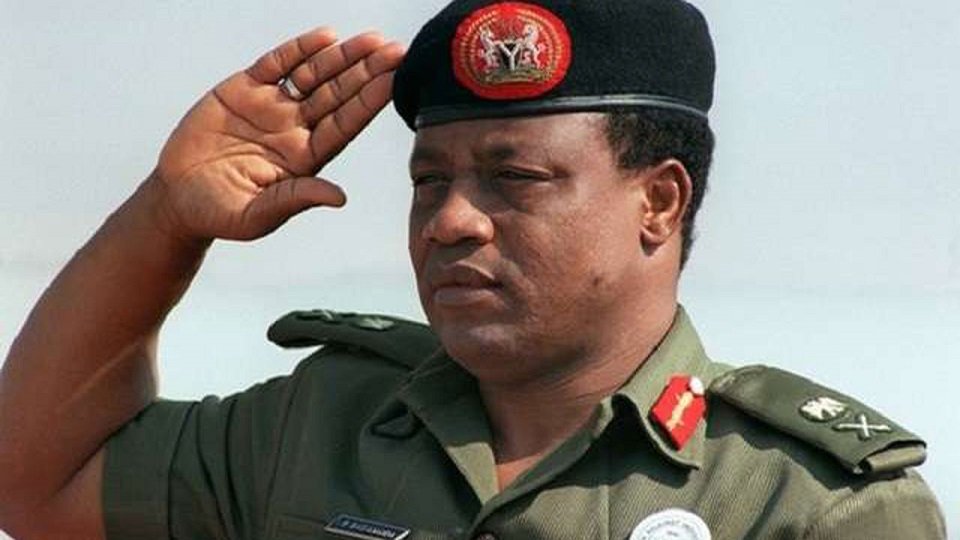
General Ibrahim Babangida
8. IBRAHIM BABANGIDA (AUGUST 27, 1985 – AUGUST 27, 1993)
In 1941, Ibrahim Badamasi Babangida, a former military ruler of Nigeria, was born in Minna, Niger State. Ibrahim Babangida attended military school before joining the Nigerian Army on December 10, 1962, where he worked in administration for Olusegun Obasanjo’s military regime.
Ibrahim Babangida was appointed Chief of Army Staff and a member of the Supreme Military Council under General Muhammadu Buhari’s rule (SMC). In August 1985, he finally took over as the military’s head of state. Early in 1986, Babangida declared that a civilian administration would be established by 1990; however, he extended the deadline by two years to give more time for planning.
When a presidential election was held in 1993, it appeared Babangida would fulfil his promise of returning to civilian rule. Businessman Moshood Abiola, the SDP candidate, initially seemed to win the election. Still, Babangida annulled them before the official results were made public, a move that turned out to be divisive and unpopular. Following the ensuing general turmoil, he resigned from office and turned the government into an interim civilian council led by billionaire Ernest Shonekan.
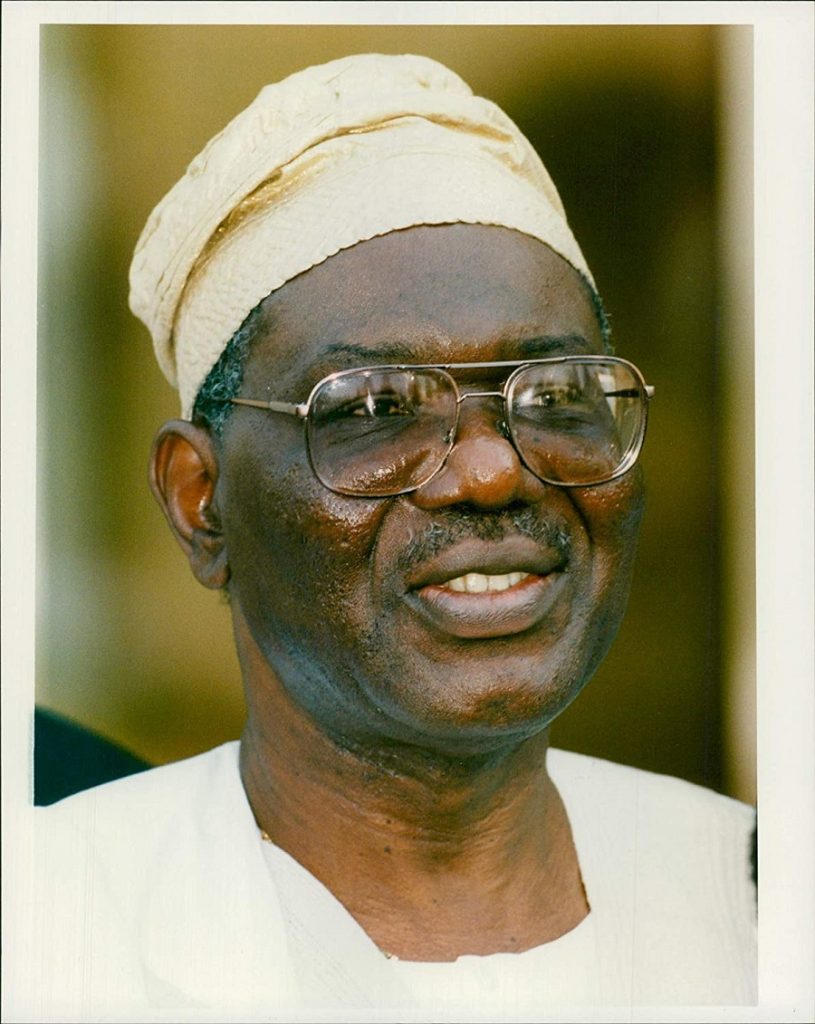
Chief Ernest Shonekan
9. CHIEF ERNEST SHONEKAN (AUGUST 26, 1993 – NOVEMBER 17, 1993)
On May 9, 1936, Shonekan was born in Lagos. He was the sixth kid born into a government official from Abeokuta family.
Shonekan received his education at CMS Grammar School and Igbobi College. He earned a law degree from the University of London and was admitted to the bar.
Shonekan began serving as Ibrahim Babangida’s head of government and transitional council simultaneously in January 1993. The transitional council was the last step before the Third Nigerian Republic’s scheduled handover to an elected democratic leader.
Following the annulment of the elections of June 12, 1993, Babangida resigned from power in August of that same year. He issued a proclamation forming the Interim National Government, headed by Shonekan, who was later sworn in as the nation’s leader. Three months into his term in office, in November 1993, Abacha led a palace coup to remove Shonekan.
At age 85, he passed away at the Evercare Hospital in Lagos on January 11, 2022. He was the third-oldest living Nigerian head of state at his death.
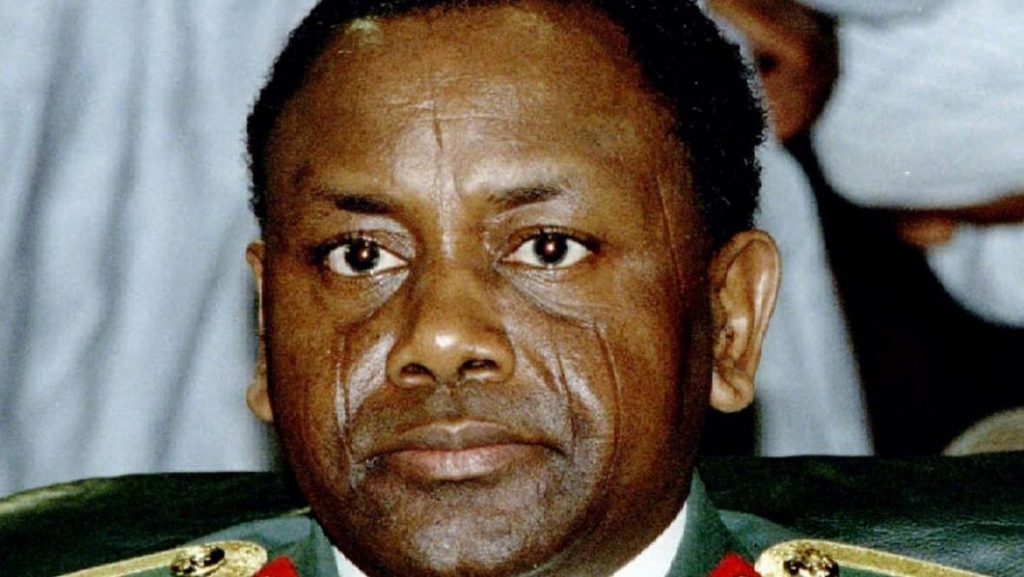
General Sani Abacha
10. GENERAL SANI ABACHA (NOVEMBER 17, 1993 – JUNE 8, 1998)
Sani Abacha, a Nigerian military officer who presided as president from 1993 to 1998, was born in Kano, Nigeria, on September 20, 1943, and died in Abuja, Nigeria, on June 8, 1998.
For his formal military education, Abacha attended military training colleges in Nigeria and the United Kingdom. Abacha replaced Bababngida as president after overthrowing the interim government of Ernest Shonekan.
During Abacha’s rule, his actions were anything but democratic, notwithstanding his promises of democratization. Any form of political action was outlawed, a significant percentage of the military was dismissed, the press was under his control, and he amassed a personal security detail of some 3,000 men. He encouraged the Economic Community of West African States (ECOWAS) and its armed forces, the ECOWAS Monitoring Group (ECOMOG), to send soldiers to Liberia and Sierra Leone to restore democracy. At the same time, he violently repressed dissent at home. Abacha’s unexpected death accelerated the transition to civilian control in June 1998.
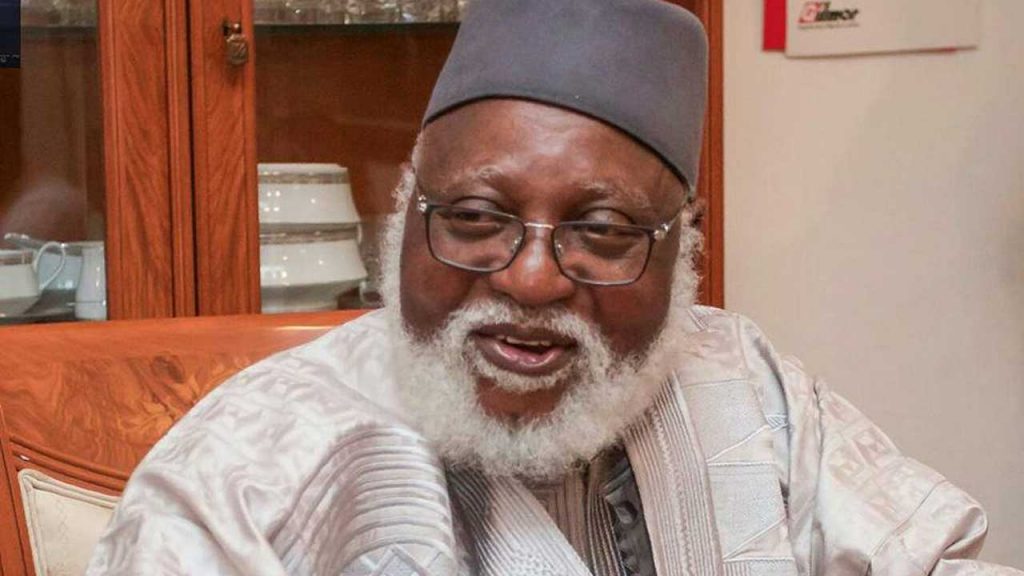
General Abdusalami Abubakar
11. ABDULSALAMI ABUBAKAR (JUNE 9, 1998 – MAY 29, 1999)
Abdusalam Abubakar is a former president of the state of Nigeria (1998–1999) who was born in Minna, Nigeria, on June 13, 1942.
Abubakar, a native of the country’s north-central, enlisted in the army in 1975 and completed his formal military training there. In 1981, he oversaw the Nigerian deployment of the UN peacekeeping forces in Lebanon. He was a senior officer by the late 1980s, and General Sani Abacha, who took over as Nigeria’s military leader that year, named him defense chief of staff in 1993.
In June 1998, Abacha passed away unexpectedly, and Abubakar was inaugurated as the next president of Nigeria. Abubakar developed a plan for multiparty elections and selected May 29, 1999, as the day the next civilian president would be sworn in, despite dissolving the political parties. The promised presidential elections took place in January 1999, and on the scheduled day, Abubakar passed power to the victor, Obasanjo.
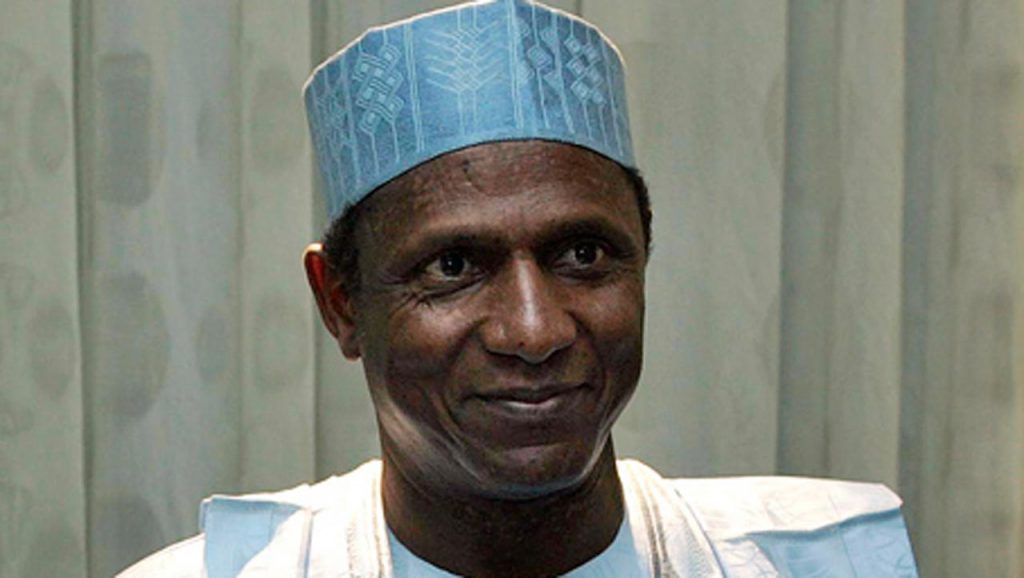
Umaru Musa Yar’Adua
12. UMARU MUSA YAR’ADUA (29 MAY, 2007 – 5 MAY, 2010)
Umaru Musa Yar’Adua was a Nigerian politician and the country’s president from 2007 to 2010. He was born on August 16, 1951, in Katsina, Nigeria, and passed away on May 5, 2010, in Abuja. For the first time in the nation’s history, an elected civilian head of state handed over authority to another with his inauguration.
To the astonishment of many, Yar’Adua was chosen by Olusegun Obasanjo, the president of Nigeria and head of the PDP, in 2006 to represent the PDP in the upcoming presidential elections. Yar’Adua won a resounding landslide victory with 70% of the vote in the April 2007 election despite competing against several well-known and well-liked Nigerian military officials and politicians. His triumph was nevertheless overshadowed by the fact that the election was marked by extensive violence, voter intimidation, and claims of vote tampering and was roundly condemned by domestic and foreign observers. He was nevertheless sworn in as Nigeria’s 13th president on May 29, 2007, in the nation’s capital of Abuja.
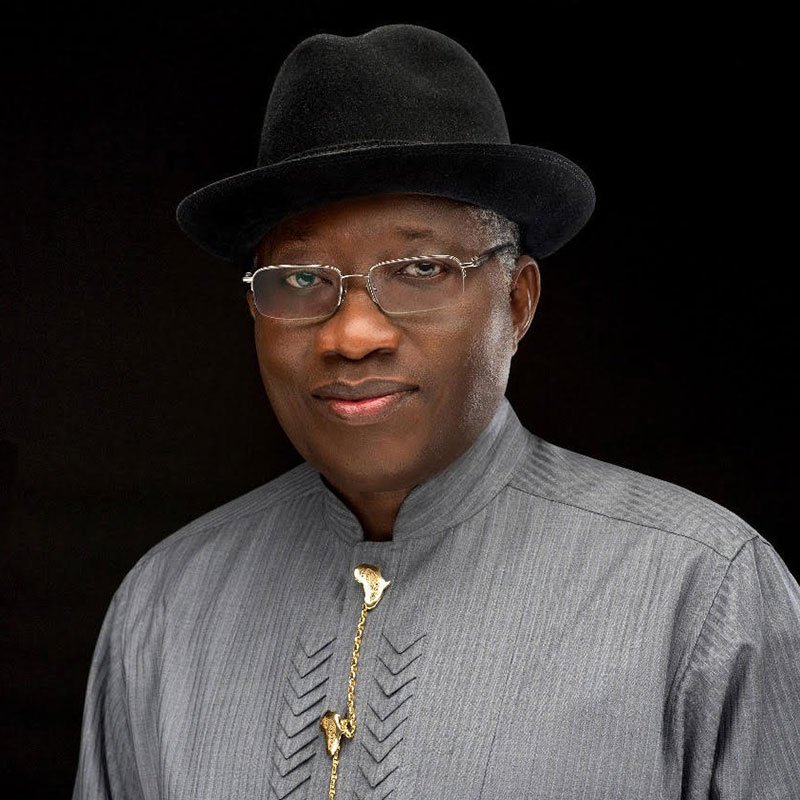
Goodluck Ebele Jonathan
13. GOODLUCK JONATHAN 6 MAY, 2010 – 29 MAY, 2015
Goodluck Jonathan is a Nigerian biologist and politician who was vice president of Nigeria from 2007 to 2010 and president of Nigeria from 2010 to 2015. In Otuoke, Nigeria, he was born on November 20, 1957. He attended Christian primary and secondary schools in the region. He then enrolled at the University of Port Harcourt, where he graduated in 1981 with a B.S. in zoology and obtained an M.S. in hydrobiology and fisheries biology and a PhD in zoology (1995). While pursuing his education, he worked as a teacher at Rivers State College of Studies from 1983 to 1993. After that, he worked as an assistant director for the now-defunct Oil Mineral Producing Areas Development Commission between 1993 and 1998.
He was chosen to be Umaru Musa Yar’Adua’s running mate for the PDP’s presidential nomination in 2007, and after winning the election, they took office in May. On May 6, 2010, he was elected president of Nigeria because Musa Yar’Adua’s illness did not result in a full recovery.
Additionally, Jonathan won the country’s April 16, 2011, presidential election. He obtained an outright victory with roughly 59 per cent of the vote and he would later lose the 2015 elections, becoming the first incumbent president to lose an election in Nigerian history.



